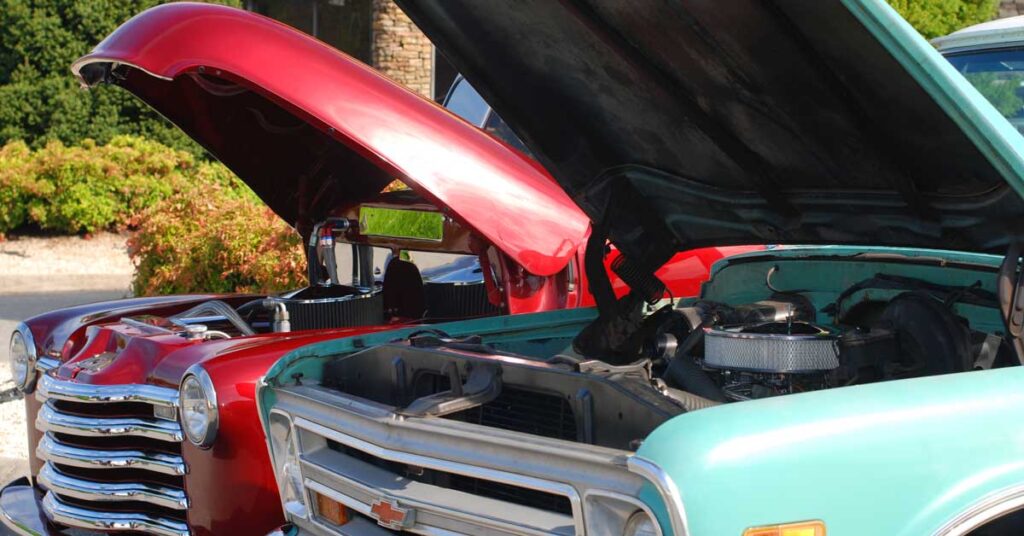
**Pigeon Forge Rod Run Implements New Policies: Traditional Golf Carts No Longer Allowed**
In a surprising move aimed at enhancing safety and improving event organization, the Pigeon Forge Rod Run organizers have announced a significant policy change for their upcoming events. Effective immediately, traditional golf carts will no longer be permitted on-site during the Rod Run events. This decision marks a departure from longstanding practices and is expected to have far-reaching implications for participants and attendees alike.
**Background and History of the Pigeon Forge Rod Run**
The Pigeon Forge Rod Run is a renowned automotive event held semi-annually in Pigeon Forge, Tennessee. Enthusiasts from across the country gather to showcase vintage cars, custom hot rods, and classic vehicles. This event has grown in popularity over the years, drawing thousands of visitors who come to appreciate the craftsmanship and creativity on display.
**Role of Traditional Golf Carts in Previous Events**
Historically, traditional golf carts have been a common sight at the Rod Run. They have served various purposes, such as transporting participants and supplies around the event grounds, providing mobility for attendees with accessibility needs, and facilitating event logistics. These carts have been integral to the smooth operation of the Rod Run, offering convenience and efficiency in navigating the expansive venue.
**Reasons Behind the Ban**
The decision to ban traditional golf carts has not been made lightly. Organizers cite several compelling reasons for this policy change, chief among them being safety concerns and logistical challenges:
1. **Safety Issues**: Traditional golf carts, while convenient, can pose safety risks when operated in crowded event spaces. Their compact size and limited visibility can make them difficult to spot amidst the hustle and bustle of the Rod Run. This has led to instances of collisions and near-misses in past events, prompting organizers to prioritize attendee safety.
2. **Logistical Considerations**: Managing a large number of traditional golf carts has proven increasingly challenging as the scale of the Rod Run has grown. Issues such as parking shortages, congestion on pathways, and restricted access areas have necessitated a reevaluation of the event’s logistical framework. By eliminating traditional golf carts, organizers hope to streamline operations and improve overall event flow.
3. **Environmental Impact**: Another factor influencing the decision is the environmental footprint associated with traditional golf carts. These vehicles typically rely on fossil fuels and contribute to noise pollution, detracting from the Rod Run’s ambiance and sustainability goals. In response to growing environmental awareness, organizers seek to promote eco-friendly alternatives and reduce the event’s carbon footprint.
4. **Enhancing Accessibility**: Despite the ban on traditional golf carts, organizers remain committed to ensuring accessibility for all attendees. Alternative transportation options, such as electric shuttles and designated drop-off zones, will be implemented to accommodate individuals with mobility challenges. These measures aim to enhance inclusivity and make the Rod Run accessible to a wider audience.
**Reaction and Response from the Community**
The announcement of the ban has sparked a range of reactions within the automotive community and among frequent attendees of the Rod Run. While some support the decision as a necessary step towards improving safety and efficiency, others express concerns about its impact on convenience and accessibility. Debate continues regarding the feasibility of alternative transportation solutions and the potential effects on attendee experience.
**Future Implications and Adaptations**
Looking ahead, the ban on traditional golf carts is expected to prompt adaptations and adjustments among participants and event organizers alike. Attendees may need to explore alternative means of transportation, such as walking, cycling, or utilizing designated shuttle services. Meanwhile, organizers will continue to refine logistical arrangements and seek feedback from stakeholders to optimize the event experience.
**Conclusion**
In conclusion, the decision to ban traditional golf carts from the Pigeon Forge Rod Run represents a significant policy shift aimed at prioritizing safety, improving logistics, and promoting environmental sustainability. While this change may present initial challenges and adjustments for participants and attendees, it underscores the event’s commitment to evolving with the times and ensuring a memorable and enjoyable experience for all. As preparations for future Rod Run events unfold, stakeholders can expect ongoing dialogue and collaboration to shape the next chapter in this celebrated automotive tradition.





